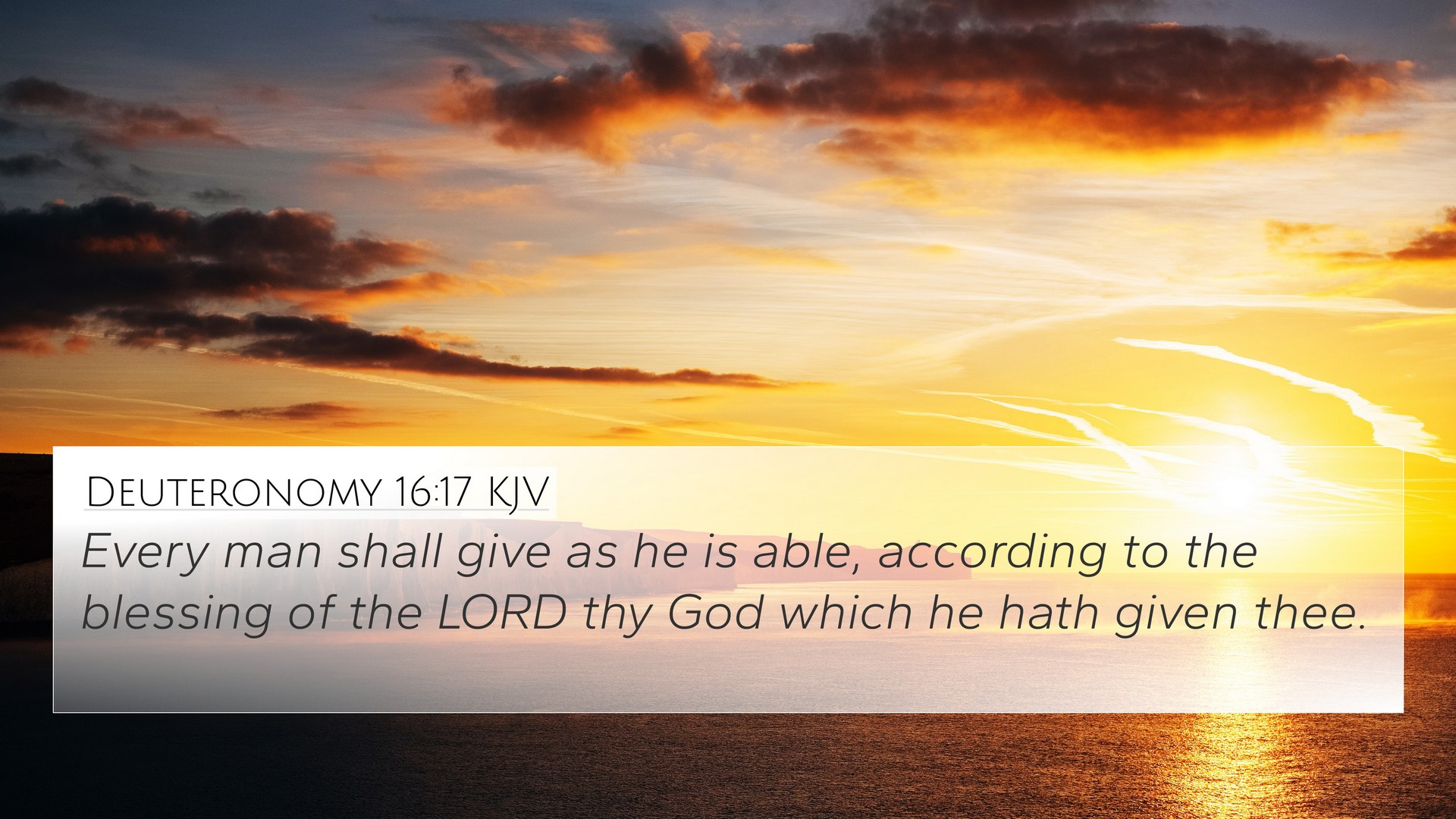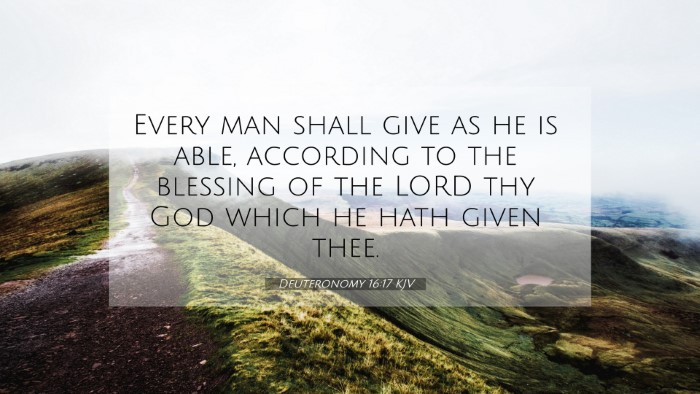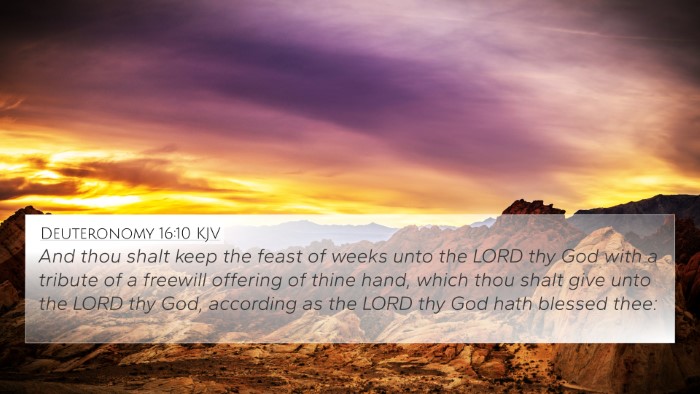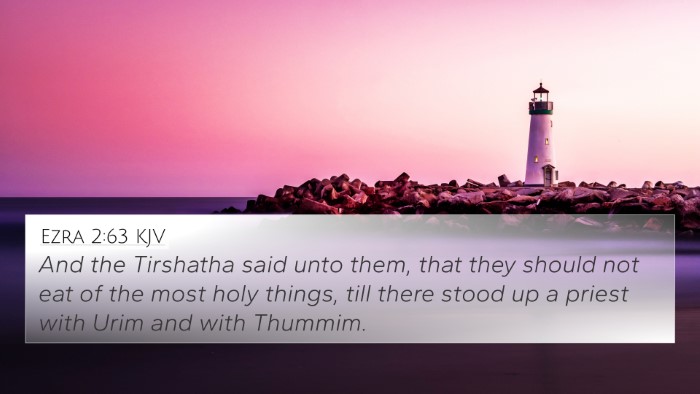Understanding Deuteronomy 16:17
Verse: "Every man shall give as he is able, according to the blessing of the LORD your God which he has given you." (Deuteronomy 16:17)
Summary of Meaning
Deuteronomy 16:17 addresses the principle of giving, emphasizing the concept of voluntary contribution according to one’s ability and the blessings received from God. This verse highlights the responsibility of individuals to acknowledge God's provisions by returning a portion of their blessings through offerings and service.
Commentary Insights
-
Matthew Henry:
Henry notes that this directive encourages generosity based on personal circumstance. He stresses the importance of giving cheerfully and gratefully, thus reinforcing the relationship between the giver and God. It is an invitation to recognize God’s grace in one’s life through tangible actions of gratitude.
-
Albert Barnes:
Barnes expands on the idea that the measure of one's giving should correspond to the blessings received. He posits that it is a call for believers to reflect on their blessings and respond with appropriately generous actions, ensuring that their contributions are sincere and reflective of their gratitude towards God.
-
Adam Clarke:
Clarke offers a historical context for the verse, relating it to the Israelite practice of giving during feasts and communal worship. He observes that this principle not only applies to financial contributions but encompasses various forms of service to God and community, showcasing a holistic approach to giving.
Key Themes
The verse encapsulates several important themes:
- Generosity: Giving should come from a place of recognition of what God has provided.
- Ability: Each person’s contribution is unique to their capacity.
- Blessing Recognition: Acknowledging the blessings from God is crucial in the act of giving.
Cross-References
Deuteronomy 16:17 resonates with various other Bible verses that expound on similar themes. Here are some that relate closely:
- 2 Corinthians 9:7: “Each one must give as he has decided in his heart, not reluctantly or under compulsion, for God loves a cheerful giver.”
- Exodus 35:5: “Take from among you a donation to the LORD. Whoever is of a generous heart, let him bring the LORD's contribution.”
- 1 Chronicles 29:14: “But who am I, and who are my people, that we should be able to offer so willingly as this? For all things come from You, and of Your own we have given You.”
- Luke 6:38: “Give, and it will be given to you. A good measure, pressed down, shaken together and running over, will be put into your lap.”
- Proverbs 3:9: “Honor the LORD with your wealth and with the first fruits of all your produce.”
- Galatians 6:10: “So then, as we have opportunity, let us do good to everyone, and especially to those who are of the household of faith.”
- Malachi 3:10: “Bring the full tithe into the storehouse, that there may be food in my house. And thereby put me to the test, says the LORD of hosts, if I will not open the windows of heaven for you and pour down for you a blessing until there is no more need.”
Thematic Connections
Examining Deuteronomy 16:17 in light of thematic connections with other scriptures enriches our understanding:
- Divine Provision: Many verses underline the sufficiency of God’s provision and the believer's duty to acknowledge it through giving.
- The Importance of the Heart in Giving: Similar scriptures emphasize the heart behind the gift, promoting a spirit of joy in generosity.
- Community and Service: Throughout the scriptures, there's a thread of community responsibility in sharing blessings, reflecting God’s character.
Conclusion
Deuteronomy 16:17 serves as a profound reminder of the generous spirit expected of believers, linked directly to their recognition of God’s blessings. By understanding and applying the principles outlined in this verse, individuals can foster a deeper relationship with God through gratitude expressed in giving. Utilizing tools for Bible cross-referencing can enhance this understanding as one explores connections between the rich tapestry of scripture.








